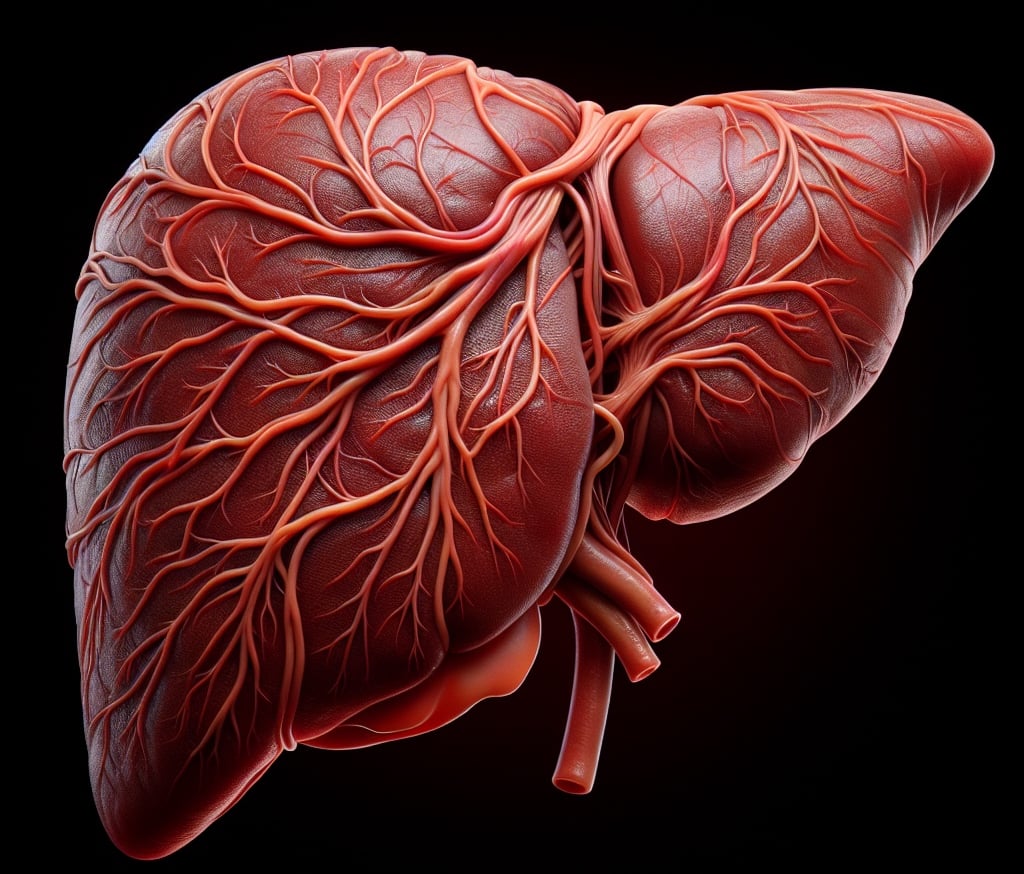Liver Disease: Types, Symptoms, and Treatment Options
Get insights into liver diseases, including cirrhosis and hepatitis. Learn about symptoms, causes, and treatment options to protect your liver and overall health.
HEALTH AND FITNESS


The liver is one of the most crucial organs in the human body, responsible for a variety of essential functions such as detoxification, metabolism, and production of vital proteins. However, various diseases can impair liver function, leading to serious health complications. Liver diseases can range from mild to severe and can be caused by a multitude of factors, including viruses, toxins, and lifestyle choices. In this article, we will explore the different types of liver diseases, their symptoms, and the available treatment options. Understanding these aspects is key to preventing and managing liver-related health issues.
Types of Liver Disease
Liver diseases can be categorized into several types based on their causes and characteristics. Some of the most common liver diseases include:
1. Hepatitis
Hepatitis is an inflammation of the liver, often caused by viral infections. The main types of hepatitis viruses are:
Hepatitis A (HAV): Transmitted through contaminated food or water. It is usually acute and does not lead to chronic liver disease.
Hepatitis B (HBV): Spread through contact with infectious body fluids, such as blood. It can be acute or chronic, potentially leading to liver cirrhosis or liver cancer.
Hepatitis C (HCV): Transmitted primarily through blood-to-blood contact. It often becomes chronic and can result in severe liver damage.
Hepatitis D (HDV): Only occurs in those infected with HBV. It can worsen the severity of hepatitis B.
Hepatitis E (HEV): Typically spread through contaminated water, similar to HAV, and usually resolves on its own.
2. Fatty Liver Disease
Fatty liver disease occurs when excess fat accumulates in liver cells. It is divided into:
Non-Alcoholic Fatty Liver Disease (NAFLD): Affects individuals who consume little to no alcohol. It can progress to non-alcoholic steatohepatitis (NASH), leading to liver damage and cirrhosis.
Alcoholic Fatty Liver Disease (AFLD): Caused by excessive alcohol consumption. It can progress to alcoholic hepatitis and cirrhosis.
3. Cirrhosis
Cirrhosis is a late-stage liver disease characterized by scarring of the liver tissue. It can result from chronic hepatitis, long-term alcohol abuse, or other chronic liver conditions. Cirrhosis can lead to liver failure and other serious complications.
4. Liver Cancer
Liver cancer, or hepatocellular carcinoma, is a malignant tumor that originates in the liver cells. It is often associated with chronic hepatitis B and C infections and cirrhosis. Early detection and treatment are crucial for a better prognosis.
5. Autoimmune Liver Diseases
These occur when the immune system attacks liver cells, causing inflammation and damage. Examples include autoimmune hepatitis, primary biliary cholangitis (PBC), and primary sclerosing cholangitis (PSC).
Symptoms of Liver Disease
Liver diseases can manifest with a range of symptoms, depending on the type and severity of the condition. Common symptoms include:
Jaundice: Yellowing of the skin and eyes due to elevated bilirubin levels.
Abdominal Pain and Swelling: Often in the upper right quadrant of the abdomen.
Fatigue: Persistent tiredness and weakness.
Nausea and Vomiting: Gastrointestinal symptoms are common in liver diseases.
Dark Urine and Pale Stools: Indicate liver dysfunction.
Loss of Appetite and Weight Loss: Often occur in chronic liver disease.
Itchy Skin: Can result from bile salt accumulation.
Easy Bruising and Bleeding: Due to impaired liver function affecting clotting factors.
Treatment Options for Liver Disease
The treatment of liver disease depends on the specific type, cause, and severity of the condition. Here are some common treatment approaches:
1. Medications
Antiviral Drugs: Used to treat viral hepatitis, such as HBV and HCV.
Anti-Inflammatory and Immunosuppressive Agents: Used for autoimmune liver diseases.
Liver Function Support: Medications to support liver function and manage symptoms, such as diuretics for fluid retention.
2. Lifestyle Changes
Diet and Nutrition: A balanced diet, rich in fruits, vegetables, and lean proteins, can support liver health. Limiting alcohol, sugar, and unhealthy fats is crucial.
Weight Management: Achieving and maintaining a healthy weight can prevent or reverse fatty liver disease.
Exercise: Regular physical activity can improve overall health and help manage liver conditions.
3. Surgical and Other Procedures
Liver Transplantation: For severe liver damage or liver failure, a liver transplant may be necessary.
Surgical Removal of Tumors: In cases of liver cancer, surgical resection of tumors may be an option.
Endoscopic Procedures: Used to treat complications like varices bleeding in cirrhosis.
4. Regular Monitoring and Follow-up
Liver Function Tests: Regular blood tests to monitor liver enzymes and function.
Imaging Studies: Ultrasound, CT scans, and MRI to assess liver structure and detect abnormalities.
Biopsy: A sample of liver tissue may be taken for detailed examination.
Quiz: Test Your Knowledge on Liver Disease
What is a common symptom of liver disease?
A) Frequent Colds
B) Jaundice
C) High Blood Pressure
Which virus is not typically associated with chronic liver disease?
A) Hepatitis A
B) Hepatitis B
C) Hepatitis C
What lifestyle change can help manage fatty liver disease?
A) Increased Alcohol Consumption
B) Weight Loss and Healthy Diet
C) Sedentary Lifestyle
Which condition is characterized by scarring of the liver?
A) Cirrhosis
B) Hepatitis A
C) Liver Cancer
What is a potential treatment for severe liver disease or liver failure?
A) Over-the-Counter Pain Relievers
B) Liver Transplantation
C) Increased Sugar Intake
Authority and Credibility
This article is based on information from reputable medical organizations such as the American Liver Foundation and the Mayo Clinic. These institutions provide evidence-based guidelines for the diagnosis, treatment, and management of liver diseases. For personalized medical advice, always consult a healthcare provider.
Conclusion: Protecting Your Liver Health
Liver diseases are a diverse group of conditions with serious health implications. By understanding the types, symptoms, and treatment options, you can take proactive steps to protect your liver health. Early detection and lifestyle changes, along with medical treatment, can help manage liver diseases and improve quality of life.
Quiz Answers
B) Jaundice
A) Hepatitis A
B) Weight Loss and Healthy Diet
A) Cirrhosis
B) Liver Transplantation
Understanding liver disease and taking proactive steps to maintain liver health are crucial for overall well-being. Regular check-ups, a healthy lifestyle, and medical guidance can help manage liver conditions effectively.
